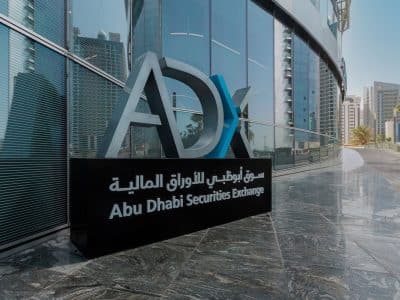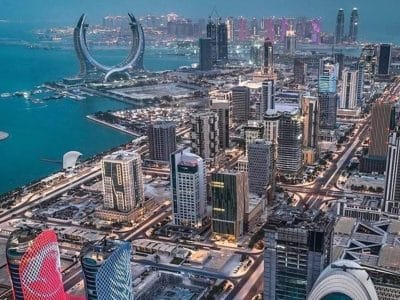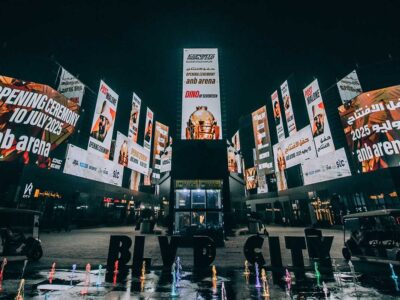Most major Arab stock markets rose on Sunday as bets related to the Expo 2020 world’s fair boosted Dubai to a fresh five-year high, while Egypt rose after the government announced a date for a referendum on the country’s new constitution.
Mubasher Financial Services said in a report that Arab markets were benefiting from “a rerating against the backdrop of strong economic growth and abundant liquidity”.
It predicted further gains next year, particularly in Egypt – provided that political stability is restored – and in Qatar and the United Arab Emirates; those two countries will be upgraded by MSCI to emerging market status next May.
Dubai has continued to climb since it won the right two weeks ago to host the Expo; real estate and construction-related shares that could benefit from Expo contracts rose once more on Sunday. Arabtec jumped 3.3 percent.
Many fund managers think the benefits from the Expo are now largely priced into stocks, but there is massive interest – some among foreign investors – in buying on dips, so the market has not entered any lasting correction.
This was seen in the performance of Emaar Properties on Sunday. The company said it would discuss on Tuesday whether to convert bonds into shares, after bond holders asked for the conversion; Emaarissued a $500 million convertible bond in 2010. The initial conversion price was set at the equivalent of 4.75 dirhams per share, according to the original issue prospectus.
But the stock largely ignored the prospect of dilution. After opening slightly lower, it rose 0.3 percent in active trade to 7.38 dirhams.
Egypt continued its uptrend, gaining 1.1 percent to 6,679 points, its highest level since January 2011, when the political turmoil surrounding the overthrow of Hosni Mubarak was just beginning. It is being buoyed by expectations for improving political and economic stability; the index broke last week above 6,500 points, seen as a major resistance level.
The government announced on Sunday that Egyptians would vote on a new constitution on Jan. 14 and 15. It is not clear how the Muslim Brotherhood, outlawed by a court in September and under pressure from a wide-ranging security crackdown, will react, but the announcement suggested the army-backed government’s transition to democracy was on track.
Capital Economics cited a growing number of signs that the Egyptian economy was turning around after slumping this year, though it added that many risks remained.
“Political tensions appear to have calmed in recent months, while an influx of aid from the Gulf has alleviated strains in Egypt’s balance of payments. The government has also launched a Gulf-funded stimulus package, the effects of which may be starting to filter through to the wider economy.”
In an otherwise sluggish Saudi Arabian market, PetroRabigh was the standout, jumping its daily limit of 10 percent after the petrochemical maker said it expected its revenues to rise by almost 1 billion riyals ($267 million) this year because its parent companies had agreed to cut international marketing fees by a third.
PetroRabigh’s earnings have been hit hard this year by maintenance at some of its facilities, pressure on profit margins, power cuts and an outage of its ethane cracker due to a water leak. The action by parents Saudi Aramco and Sumitomo Chemical appeared to be a concerted attempt to reapair its fortunes.
Kuwait’s market continued to underperform the region, dropping 0.8 percent to 7,641 points as regional money focused on more dynamic economies. The drop left the index testing major support on its 200-day average; any clean break would suggest a detrioration in the market’s long-term prospects.







